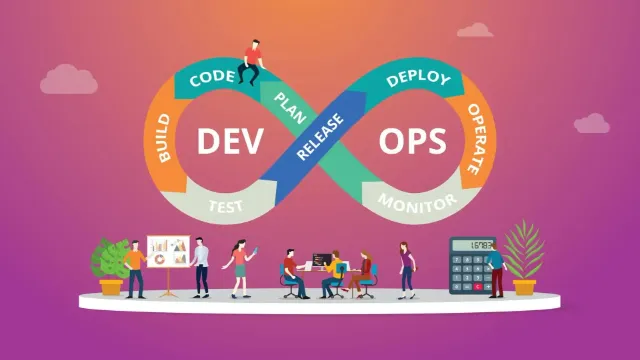Starting a Business on a Budget: Strategies That Actually Work

Starting a Business on a Budget
Starting a business can feel scare especially when your bank account does not look ready for it. But here is the truth a big budget does not guarantee success and a small one does not mean failure. Some of the world’s most successful business began at kitchen tables, garages or coffee shops which built by people who had more determination than dollars. Here are the tips for Starting a Business on a Budget with Real Strategies Actually Work in upcoming 2026.
If you have got a great idea with a strong will and a plan to work smart then you can absolutely build a profitable and successful business without draining your savings. This guide about Starting a Business on a Budget will walk you through the practical steps to start strong, spend wisely and grow steadily.
1. Begin with Purpose and Not Perfection
Before you worry about branding or websites or social media followers take a deep breath and focus on your why. Focus on Why do you want to start this business?
When you understand your purpose then every decision becomes clearer. You will know what is worth spending money on and what is not. A strong purpose is the foundation of every sustainable business and it does not cost a cent.
2. Choose an Idea That Fits Your Budget
Not all businesses need big startup capital. The key is to choose a model that matches your resources.
If you are short on cash but rich in skills and start with a service-based business. Freelance writing, graphic design or tutoring require little more than your expertise and a laptop.
If you prefer selling products and explore drop shipping or print on demand. These models allow you to sell items without storing inventory or paying upfront for stock.
If you enjoy creating digital value then consider online courses, eBooks or templates things you can make once and sell repeatedly with minimal cost.
The goal is to start small, validate your idea and reinvest your profits as you grow.
3. Validate Before You Invest
A common mistake first-time founders make is pouring money into something before they know if anyone actually wants it. Don’t guess test.
Create a simple landing page describing your product or service. Share it in relevant groups or social media communities and see if people sign up or express interest.
You can also run a small pre-sale or offer early access discounts to gauge real demand. If no one bites that is valuable feedback and you have saved yourself from spending on an unproven idea.
4. Build a Brand That Feels Real and Not Expensive
You do not need a costly logo or a fancy website to look professional. What people care about is authenticity and consistency.
Use free design tools like Canva to create your logo or business cards. Choose two or three colors and fonts that represent your brand personality. Then apply them consistently across your platform’s website, emails and social media.
Your brand is not your logo it is how you make people feel. Be honest and consistent and your audience will trust you faster than any high budget campaign could achieve.
5. Keep Startup Costs Lean
Let us be real the fastest way to kill your business before it starts is overspending. So, think lean. Ask yourself before every purchase that Will, this directly help me earn or attract customers right now?
Start with the essentials
A simple website or landing page you can use WordPress or Wix.
Basic accounting software use Wave or Zoho Books for free.
Business email and social media presence.
Avoid renting offices and buying unnecessary tools or paying for features you do not use yet. Focus on what brings value today and not what looks fancy.
Also Read: Best Strategies to Start a Business from Scratch
6. Master the Art of Free and Organic Marketing
You do not need a massive advertising budget to get noticed you just need creativity and consistency.
Start by building an audience through value. Share tips and stories on social media. If you sell handmade candles or post videos showing how you make them. If you are a consultant share helpful advice that positions you as an expert.
Do not underestimate the power of content marketing. Blogging and YouTube videos can bring in traffic and build trust without costing anything but your time.
And remember that real engagement beats paid followers every single time.
7. Network and Collaborate
Connections can open doors that money can’t. Attend free local events and online meetup. Introduce yourself genuinely and not as a salesperson but as someone looking to learn and collaborate.
You can also partner with other small business owners for cross promotions. If you are a photographer then collaborate with a local event planner. You will both gain exposure to new audiences without spending a dime.
8. Learn to Wear Multiple Hats
When you are just starting you will likely be your own marketer, accountant and customer service rep. And that is okay it is part of the early grind.
Use free online resources to upskill yourself. You can learn social media strategy, copywriting or basic bookkeeping from platforms like Coursera, HubSpot Academy and YouTube.
When you have built some momentum then you can outsource tasks that take up too much of your time. But in the beginning every skill you learn saves you money.
Also Read: 5 Tips To Start A Successful Online Business Using Facebook
9. Track Every Dollar
Managing money carefully is not optional when you are starting on a budget it is survival.
Keep a simple spreadsheet or use free software to track income and profit and Set clear limits for monthly spending and always keep a small emergency fund for unexpected costs.
Financial discipline is not just glamorous but it is the backbone of every lasting business.
10. Grow Slowly and Grow Smart
Many entrepreneurs get caught up in the excitement and try to scale too fast. But slow intentional growth is often the most sustainable kind.
Instead of expanding your product line or renting an office early then focus on improving your core offering. Listen to customer feedback and increase your efficiency.
When you do reinvest or spend on what directly drives growth better marketing and improved customer experience or streamlined operations.
11. Build Relationships but Not Just Sales
People do not buy from businesses they buy from people they trust. Whether it is one loyal customer or a hundred treat them with care. Respond to messages also ask for feedback and genuinely show appreciation.
A single happy customer can refer five more. Word mouth is still the cheapest and most effective marketing tool you will ever have.
12. Keep Your Mindset Strong
Entrepreneurship is not just about money or strategy it is about resilience. There will be days you doubt yourself when things move slower than you hoped.
Remind yourself why you started and celebrate the small wins. Every sale or positive comment is proof that you are building something real.
Final Thoughts
Starting a business on a budget is not about cutting corners it is about being smart with what you have and the goal is progress and not perfection.
Start small successful business also think creatively and keep learning. You will be amazed at how far you can go without a huge investment because in the end the best resource any entrepreneur can have is determination.






